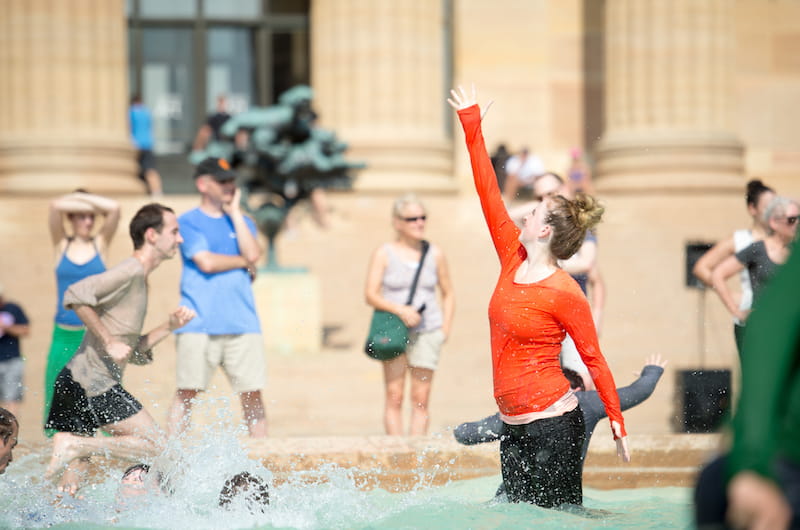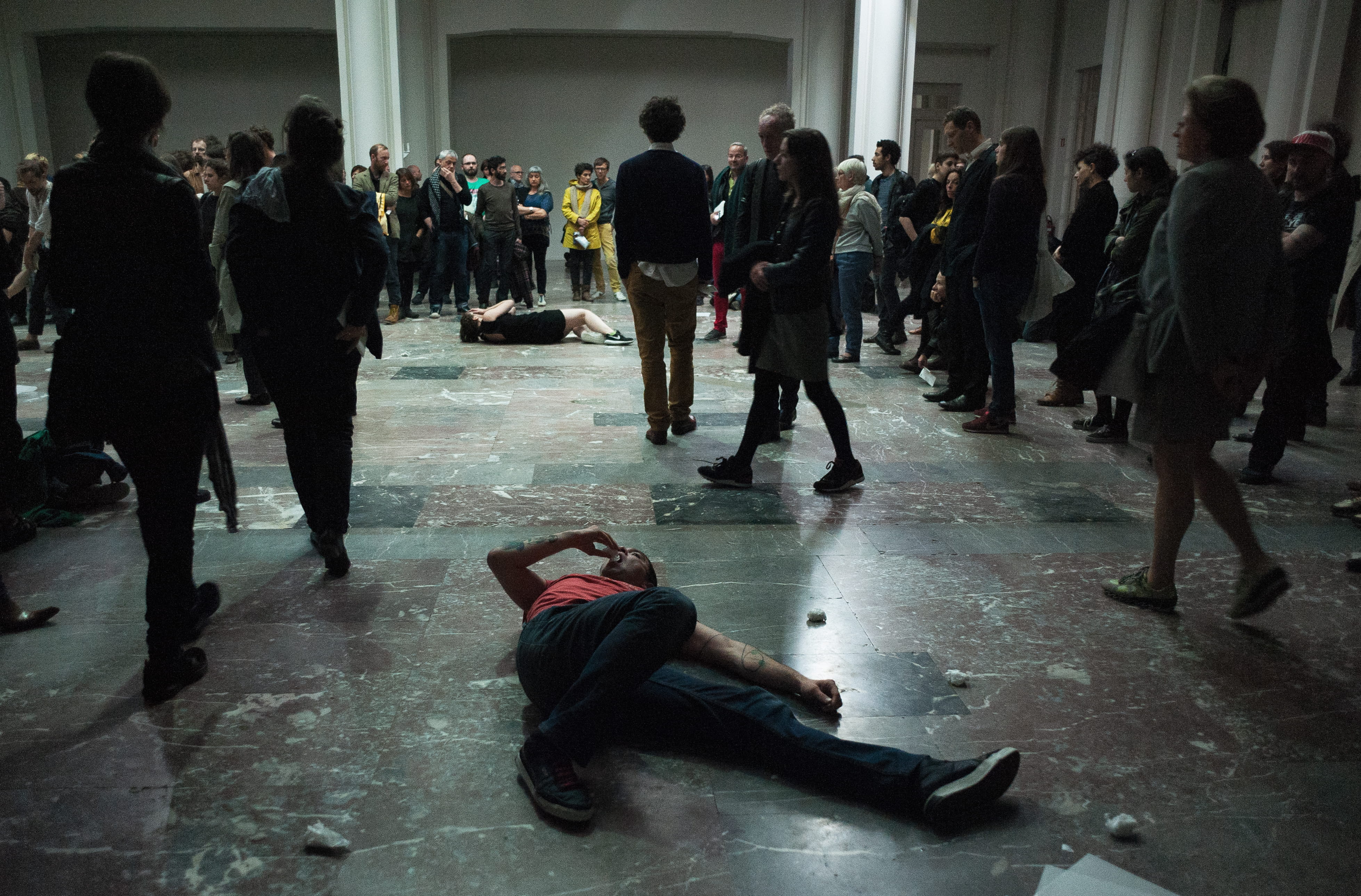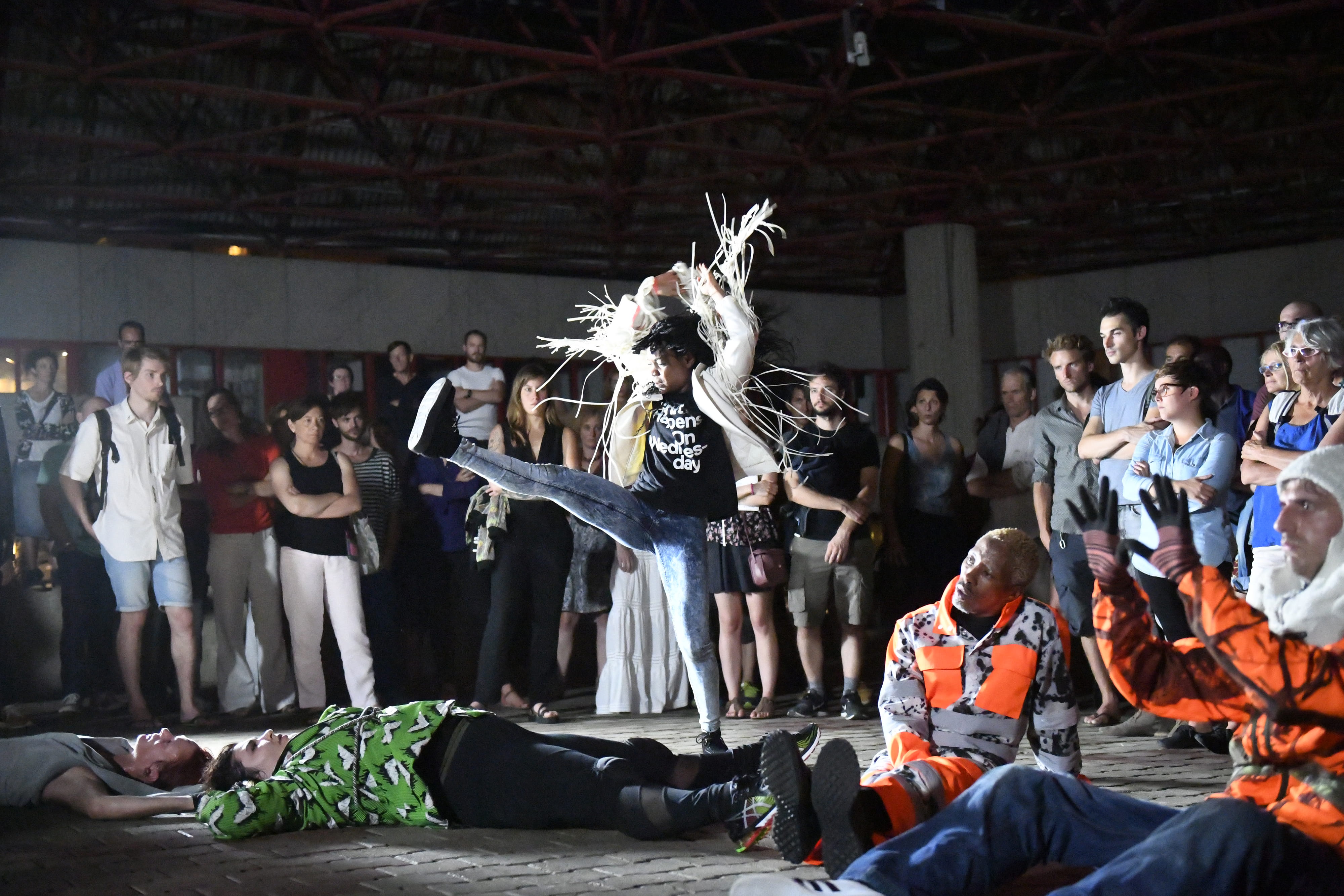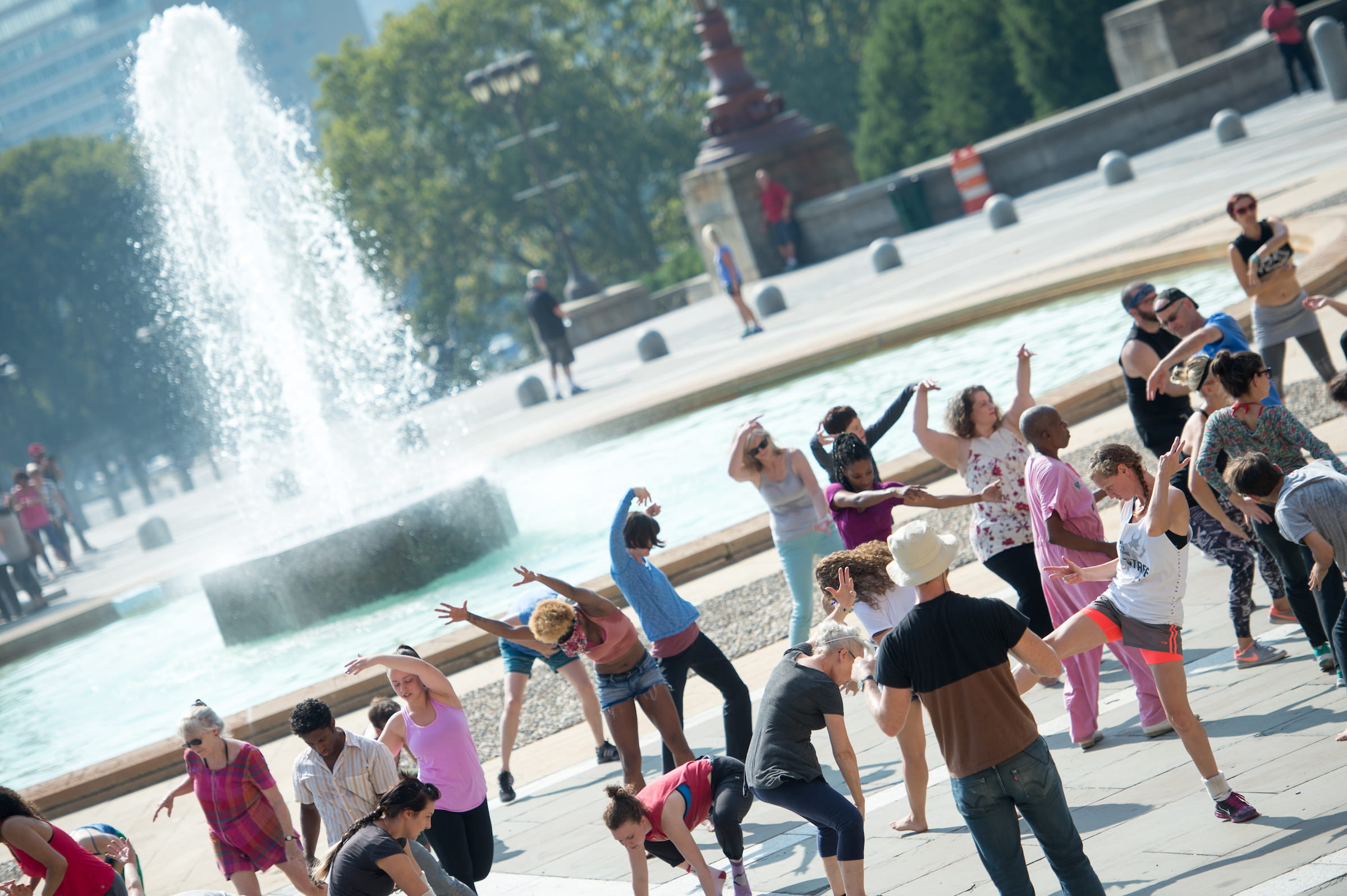Experience Philadelphia Museum of Dance; A Day of Living Art and Social Interaction at the Barnes Foundation

- MXene Nanomaterials Enter a New Dimension
- From Drexel to the Olympics: The Legacy of Thailand’s First Winter Olympian
- Drexel-Study-Finds-Early-Intervention-Helps-Most-Autistic-Children-Acquire-Spoken-Language
- A Nanomaterial Flex — MXene Electrodes Help OLED Display Technology Shine, While Bending and Stretching

With dance performances taking place in nearly every corner, the Barnes will seemingly come alive. Credit: JJ Tiziou Photography
An immersive dance experience for a curious, engaged and invested audience comprised of visual art and performance enthusiasts, visual and performing artists and students, and those looking to expand their cultural knowledge by partaking in a unique arts event.
Philadelphia Museum of Dance is a day-long public performance that will take place at the Barnes Foundation on Saturday, Oct. 6, 2018 from 3 - 9 p.m. A free exhibit of live dance, Philadelphia Museum of Dance will explore the tension between public and private experiences, while offering a new opportunity to engage with how dance and visual art are exhibited. Known for his innovative exploration of choreographic assembly, internationally acclaimed French choreographer Boris Charmatz will co-curate the six-hour public performance.

The event will allow its audience to explore new experiences, in a novel kind of museum that permits audience members to move through outdoor and indoor performance locations and witness choreography performed around and among fellow museum-goers. Guests will witness the Barnes Foundation transform. With dance performances taking place in nearly every corner, the museum will seemingly come alive. Audiences will interact directly by wandering through the dance “galleries.” As with any museum visit, it will be up to the audience to find juxtapositions between the exhibits. Performers will be spatially adjacent to audiences, with no proscenium separation, or interspersed with the audience, to facilitate maximum audience-performer interaction.
To begin, Charmatz will lead a group warm-up to awaken the body and mind. Guests can meander through the Solo Forest, where multiple simultaneous solos will be performed by a diverse group of dancer artists; take a break in the auditorium while watching a program of curated dance on film; or participate in a Soul Train. One goal of Philadelphia Museum of Dance is that guests curate their own experience according to their interests. With so many different performances and interactive elements on offer, guests can choose what they want their day to look like.

The Barnes' coffee bar, café, and restaurant will be open during normal operating hours and, since the Barnes Foundation will be open well past its usual closing time, a food truck will be stationed outside for museum-goers who need to re-fuel.
Philadelphia Museum of Dance will conclude with Charmatz’ work danse de nuit (Dance of the Night), a work for six dancers created as a response to the Charlie Hebdo terror attacks that examines the idea of public choreographic assembly as a way to see private and personal responses to political events.
“Dance is a visual art with a temporal element. As an audience, we experience it visually, not unlike the way we experience visual art in a museum,” said Miriam Giguere, PhD, project director and head of the Performing Arts department at Drexel University’s Westphal College of Media Arts & Design. “We invited Boris Charmatz to co-curate this exhibit because he suggests that community inclusive performance events place the expressive body on exhibition much like visual art exhibitions place objects on display. His questioning leads us to wonder if groups of people gathering to express meaning, whether personal or political, with their physical presence create a performance or an exhibition?”
Guests are encouraged to preface their Oct. 6 visit with a viewing of Charmatz’ manger, which will be performed during the Fringe Festival on Saturday, Sept. 22 and Sunday, Sept. 23 at 8 p.m. The piece implores audiences to examine the nature of eating, digesting information, and consuming. Tickets are now available for purchase at http://fringearts.com/event/manger/.

About manger, Boris Charmatz says, “We launch movement with our mouths…Dance is in the stomach. Dance is in the palate. Dance is in the teeth…We envision a sort of meal in motion, we eat everything, we eat anything, all the time...We are an orchestra in motion, self-fueled…The essence is jammed down the throat. You don’t want to die stuffed. You swallow the message without having read it. You swallow reality. You digest conflicts.”
The performance of manger at the beginning of this project is designed to stimulate and provoke audience interest in the questioning of what differentiates a public and private act, and when these acts become a public exhibition. The concluding free public event at the Barnes Foundation on Oct. 6 will be a rich collection of performances. A full schedule of events for Philadelphia Museum of Dance is listed at drexel.edu/phlpmd.
"We look forward to activating the full Barnes campus with the performances of Drexel University's Westphal College of Media Arts & Design's Philadelphia Museum of Dance," said Thom Collins, executive director and president of the Barnes Foundation. "The Barnes will come alive in a new dynamic way for this day-long, immersive dance event, and we look forward to welcoming the public—everyone from students, visual art and performance enthusiasts, and the culturally curious—to participate in this unique experience."
Drexel’s Westphal College of Media Arts & Design received a grant of $300,000 from The Pew Center for Arts & Heritage in support of Philadelphia Museum of Dance, which is produced in partnership with the Barnes Foundation. Performances of manger are presented in partnership with FringeArts.
In This Article
Contact
Drexel News is produced by
University Marketing and Communications.